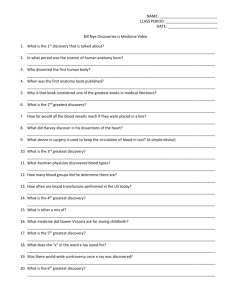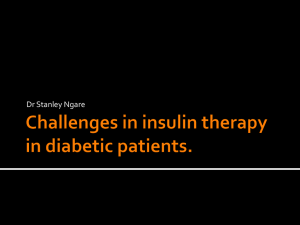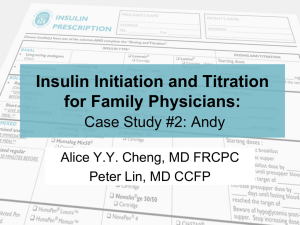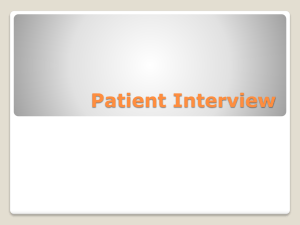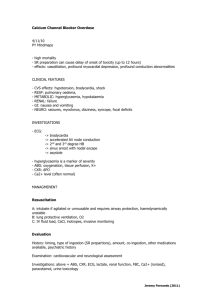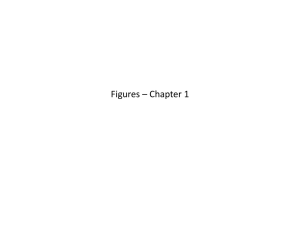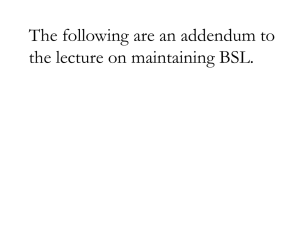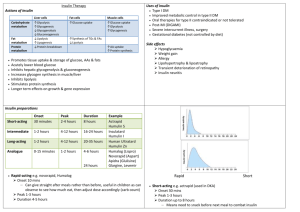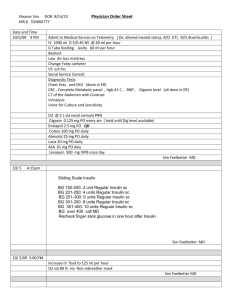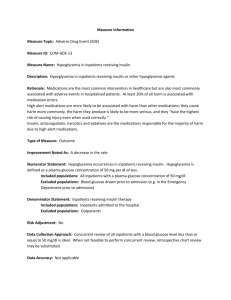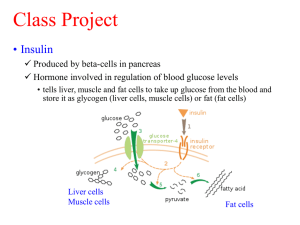Blood Glucose Monitoring Case Study
advertisement
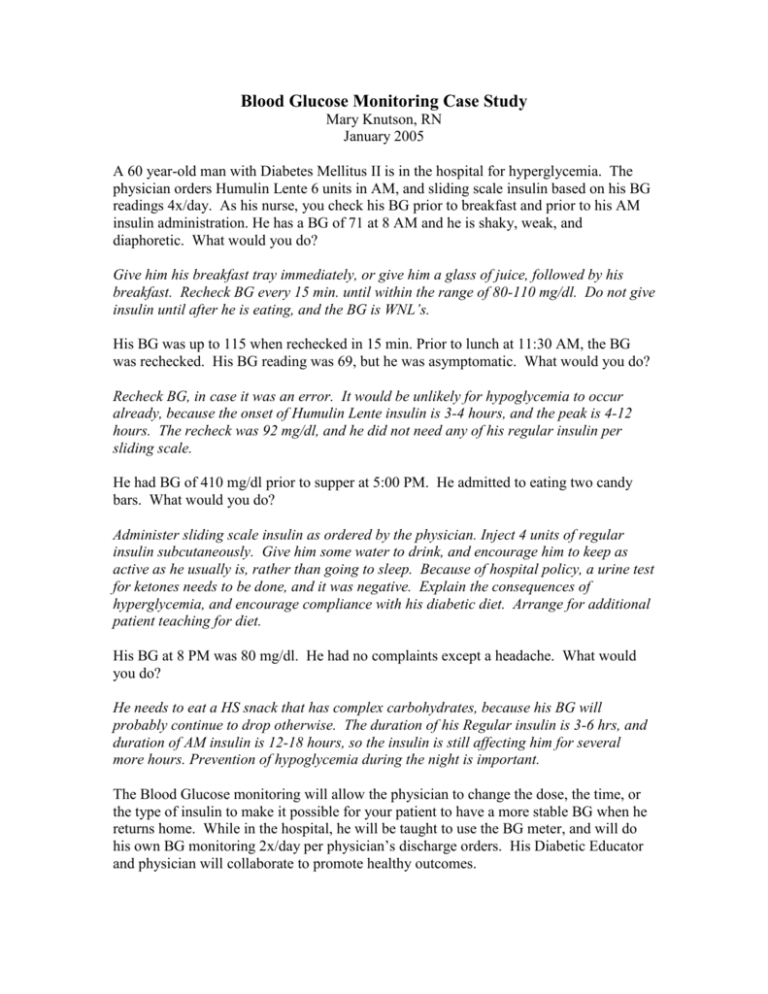
Blood Glucose Monitoring Case Study Mary Knutson, RN January 2005 A 60 year-old man with Diabetes Mellitus II is in the hospital for hyperglycemia. The physician orders Humulin Lente 6 units in AM, and sliding scale insulin based on his BG readings 4x/day. As his nurse, you check his BG prior to breakfast and prior to his AM insulin administration. He has a BG of 71 at 8 AM and he is shaky, weak, and diaphoretic. What would you do? Give him his breakfast tray immediately, or give him a glass of juice, followed by his breakfast. Recheck BG every 15 min. until within the range of 80-110 mg/dl. Do not give insulin until after he is eating, and the BG is WNL’s. His BG was up to 115 when rechecked in 15 min. Prior to lunch at 11:30 AM, the BG was rechecked. His BG reading was 69, but he was asymptomatic. What would you do? Recheck BG, in case it was an error. It would be unlikely for hypoglycemia to occur already, because the onset of Humulin Lente insulin is 3-4 hours, and the peak is 4-12 hours. The recheck was 92 mg/dl, and he did not need any of his regular insulin per sliding scale. He had BG of 410 mg/dl prior to supper at 5:00 PM. He admitted to eating two candy bars. What would you do? Administer sliding scale insulin as ordered by the physician. Inject 4 units of regular insulin subcutaneously. Give him some water to drink, and encourage him to keep as active as he usually is, rather than going to sleep. Because of hospital policy, a urine test for ketones needs to be done, and it was negative. Explain the consequences of hyperglycemia, and encourage compliance with his diabetic diet. Arrange for additional patient teaching for diet. His BG at 8 PM was 80 mg/dl. He had no complaints except a headache. What would you do? He needs to eat a HS snack that has complex carbohydrates, because his BG will probably continue to drop otherwise. The duration of his Regular insulin is 3-6 hrs, and duration of AM insulin is 12-18 hours, so the insulin is still affecting him for several more hours. Prevention of hypoglycemia during the night is important. The Blood Glucose monitoring will allow the physician to change the dose, the time, or the type of insulin to make it possible for your patient to have a more stable BG when he returns home. While in the hospital, he will be taught to use the BG meter, and will do his own BG monitoring 2x/day per physician’s discharge orders. His Diabetic Educator and physician will collaborate to promote healthy outcomes.
